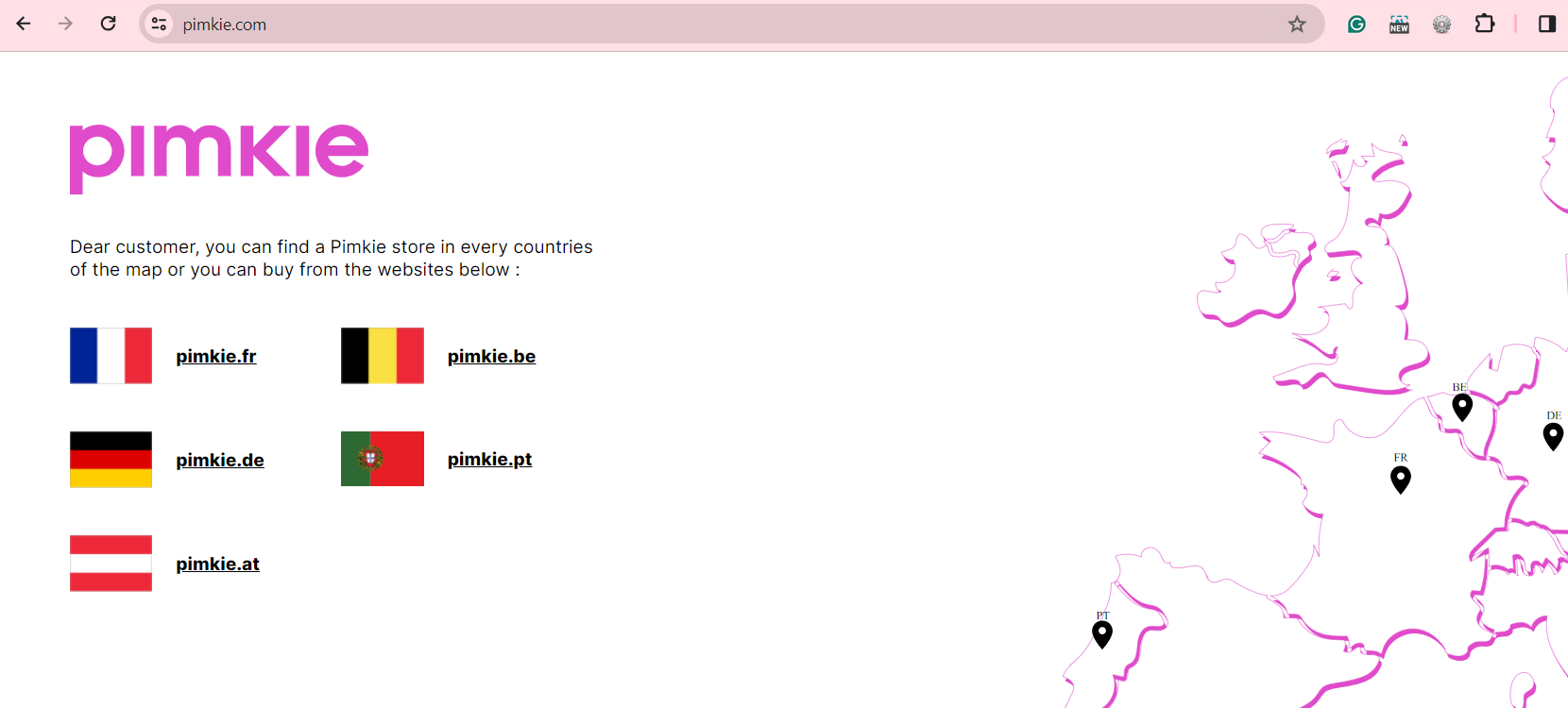Tips and Guides
What is an International Domain Name?

Choosing a domain name is one of the most important steps when setting up a business website. This includes deciding on the right extension, like .com or .co. You might have come across the term international domain name in your search, but you’re probably wondering what that means.
An international domain name has several interpretations. When you understand what these are (and their benefits), you can decide if this sort of domain is the right option for you. Plus, it will help ensure that your chosen domain reflects your brand and aligns with the type of business you run.
In this post, we’ll take a closer look at the different types of international domain names, and discuss the pros and cons of each option. Then, we’ll show you how to register your international domain with SirsteveHQ. Let’s get started!
What Is an International Domain Name? 3 Interpretations
In this section, we’ll delve into three distinct perspectives on international domains. One of these will likely suit your business better than the other two.
1. Generic TLDs for an International Presence
Top Level Domains (TLDs) are popular extensions found in domain names. These include .com, .net, .org, and .co. Since they’re so widely used, they’re often classified as being “international”.
On the other hand, many businesses use country code TLDs like .co.uk (United Kingdom), .ca (Canada), and .de (Germany) to indicate their geographical location or nationality. Some even make their websites available in multiple extensions, based on the countries where they operate:

However, for companies that cater to an international audience (and not just a select number of countries), global TLDs like .com may be preferable.
For example, at SirsteveHQ, we use an internationally recognized TLD like .com because we provide hosting services to individuals and businesses around the world.
The universality of TLDs such as .com or .co can help you establish a more global presence and appeal to a wider audience. Anyone who comes across your .com shop will immediately know that you likely ship internationally. Meanwhile, if you use a country-specific TLD like .es, they would probably think that you only deliver to Spain.
We’ll take a closer look at the pros of an international domain like .com later in this post.
2. Internationalized Domain Names (IDNs)
The second interpretation of an international domain name is a bit more technical. In fact, we’ll now be talking about Internationalized Domain Names (IDNs), rather than international ones.
IDNs address the linguistic diversity of internet users. They enable website owners to register domain names in non-Latin characters.
This is possible thanks to a system called Punycode, which allows for representation in ASCII characters. ASCII stands for American Standard Code for Information Interchange, and it’s a code set made up of 128 code points, each one representing a unique character.
For example, a Japanese IDN like こんにちは世界.net would translate to xn--28j5bxa1e8b.net.
By catering to users from particular linguistic backgrounds, these domain names promote inclusion on the web. However, not all applications like email clients and browsers support IDNs.
3. .international TLD
When we talk about international domain names, we could also be referring to website URLs that end with the extension .international.
As a website owner, you’re not restricted to common TLDs like .com and country-specific ones like .co.uk. In fact, unique domain names are becoming more popular.
For example, software developers may use the extension .app or .dev for their products or services, while bloggers might opt for .blog:

If you want to emphasize the fact that you’re an international company, you might go for a .international domain. This would immediately communicate to site visitors that you’re a global brand.
However, there is a downside to using this lesser-known domain extension, which we’ll look at in the next section.
The Pros and Cons of International Domain Names
If you’re not sure whether to choose an international domain name, this section will help you decide.
We’ll now discuss the advantages and disadvantages of each of the three domain types we discussed in the previous section.
Pros and Cons of Generic TLDs
An internationally recognized TLD like .com can help you appeal to a broader market. This is particularly useful if you ship your products or offer your services to customers across the globe, even if you’re only based in one country.
Of course, since these extensions are so popular, it can be difficult to use them with your preferred domain or company name. If the domain name you want is taken, you’ll need to choose a different one or try to purchase it from the owner.
Additionally, an international domain might make it difficult to target a specific region. For example, if your shop is based in Manchester and you use a domain like .com, you might struggle to appear in the top search results for users in the UK. These will likely be dominated by URLs that end with .co.uk.
Pros and Cons of IDNs
Internationalized domain names prioritize linguistic diversity and inclusivity. If you opt for this type of domain, you can make your product or service more easily accessible to users who speak a language with non-Latin characters.
The main downside is that IDNs have limited support in some systems and browsers. Plus, they can cause confusion among users due to some homographs from different scripts looking similar but having other meanings.
Pros and Cons of .international TLDs
A domain name with the .international extension clearly indicates that your brand is global. In fact, it can be an essential part of your branding or selling point.
This makes it an attractive option for businesses with an international audience. Plus, it can be easier to find an available domain name with the .international extension than it is with TLDs like .com.
However, since the .international TLD is less common, it will also be less familiar to users. This can potentially lead to trust issues, as unusual domain names are associated with online scams, and might therefore affect your conversions.
Registering an International Domain Name with SirsteveHQ
Once you’ve decided which international domain name to use, you’ll need to register it with a reputable company. SirsteveHQ makes the process super easy.
You can start by using the instant domain search feature. This will show your desired domain name’s availability in different extensions.
If you want to use the .international extension, you can simply add it to the domain name and SirsteveHQ will tell you if it’s available.
Then, you can hit the Add To Cart button and proceed to checkout.
With SirsteveHQ, you can also purchase add-ons such as DNS management to help speed up your site, and ID protection (also called domain protection) to safeguard your personal details and reduce spam.
Note that you can also use SirsteveHQ to register IDNs and popular TLDs like .com and .org.
Conclusion
Choosing the right approach for an international domain can help ensure that you appeal to the right audience. To do this, you’ll need to carefully evaluate the pros and cons of each option.
As we have seen, an international domain name may refer to:
- Generic TLDs like .com, which are recognized everywhere and can therefore help you build a global presence.
- Internationalized domain names, which contain non-Latin characters and appeal to users from specific linguistic backgrounds.
- Domains that use the .international extension to immediately show users that they operate across the globe.
Do you have any questions about choosing an international domain name? Let us know in the comments section below!
-

 Newsroom2 weeks ago
Newsroom2 weeks agoExploring Domain Registration and DNS Management with SirsteveHQ in Nigeria
-

 Website Tutorials4 weeks ago
Website Tutorials4 weeks agoNginx Basics: From Nginx Restart To Configuration Checks
-

 Newsroom3 weeks ago
Newsroom3 weeks agoWordPress 6.5: What’s new?
-

 Website Tutorials4 weeks ago
Website Tutorials4 weeks agoUnderstanding DNS Cache: How to Flush DNS on Linux


















